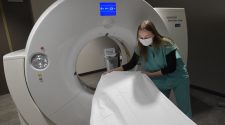There have been concerns over the last few months about the impact that the current state of affairs is having on persons’ mental health. These concerns are quite valid and are particularly true for women who have given birth and are at risk for postpartum depression (PPD).
This mental health issue can be largely undetected and can lead to negative effects on a family, especially the mother and child. We learn that motherhood should be a wonderful experience, women are built to take care of children, we are told. When a woman gives birth and finds that she does not necessarily have these feelings and can even want the baby gone, then guilt takes over as well as mental health decline.
According to the World Health Organization (WHO): “Worldwide, about 10 per cent of pregnant women and 13 per cent of women who have just given birth experience a mental disorder, primarily depression. In developing countries this is even higher, that is, 15.6 per cent during pregnancy and 19.8 per cent after childbirth. In severe cases, mothers’ suffering might be so severe that they may even commit suicide. In addition, the affected mothers cannot function properly.”
Clearly, this is a very serious matter that needs far more attention than it currently gets. Fathers and other family members can play their part by educating themselves on how to identify PPD in a loved one. The WHO has several resources on its website to assist with this.
APPS TO HELP WITH MENTAL HEALTH
Given our current restrictions in this COVID-19 world, technology can be used to assist those who seek intervention for mental health matters, including PPD. There are several applications that focus on this area.
Here are some of them:
• PPD ACT is more of an app-based study than a therapeutic type of app, but was groundbreaking in its approach to the study of postpartum depression using modern technology. It’s the first mobile health study of its kind to focus on psychiatric genetics. The app was used “to recruit, consent, screen, and enable DNA collection from women with a lifetime history of PPD to sufficiently power genome-wide association studies” ( nature.com).
Over 7,300 women participated and about 3,000 genetic samples were collected. The assessment tools within the app were able to detect PPD as well as a clinical professional. Importantly, several women who participated in the research subsequently sought treatment for PPD based on the symptoms and diagnosis given via the app.
• Happify is supported by a team of psychologists, neuropsychologists and psychotherapists renowned for work in their field. The platform focuses on what they refer to as the science of happiness, which includes various ways in which one can improve one’s well-being. It offers customised care and is designed to assist with coping with and managing depression, as well as improve overall well-being. Find out more at happify.com.
• Peanut is an app that is often referred to as the ‘tinder for moms’ because it connects moms in much the same way. It describes itself as a “social network for women throughout all stages motherhood”. Peanut allows one to share with and learn from a community of persons who have similar experiences. You may select the persons you believe have the same interests or challenges as you or who are in the same geographic location. Check https://www.peanut-app.io/ for more information.
• Moodtools is much more than it sounds. The app is particularly for persons with clinical depression. It provides tools for psycho-education on various types of depression and treatments. A great part of the app is that it has a suicide safety tool that allows users to identify triggers, coping mechanisms and create a safety system for themselves in the event that such feelings arise with contact information for mental health professionals. It’s interactive, provides various other resources such as videos, and allows users to track their symptoms. Get more information at moodtools.org.
Unfortunately, mental health isn’t talked about enough and the negative stigma surrounding it doesn’t help. There are many factors that are largely outside of our control that can serve to diminish our mental health. Advice and assistance from a mental health professional is always best even while other tools are sought to assist with coping from day to day.
– Doug Halsall is chairman and CEO of Advanced Integrated Systems. Email feedback to [email protected] and [email protected]

















